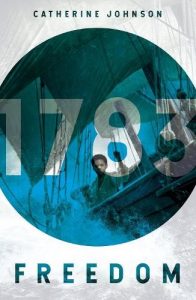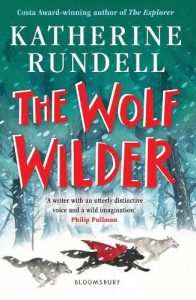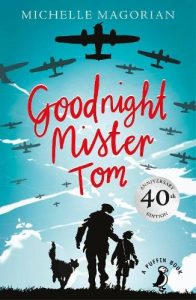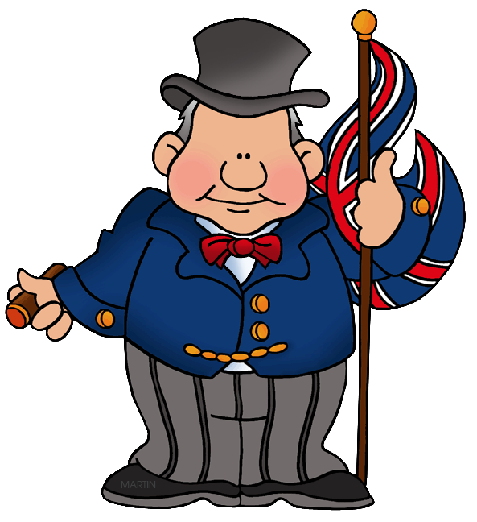| Subject |
Term 1 |
Term 2 |
Term 3 |
Term 4 |
Term 5 |
Term 6 |
| Topic |

- Ancient African kingdoms; the development of the transatlantic slave trade and Britain’s role.
- Africa: continents, countries, land use, natural resources, location, settlements, population, climate and physical features.
|

- Polar exploration; significant people – Robert Falcon Scott and Ernest Shackleton. Significant events – Titanic.
- Arctic and Antarctic regions; lines of latitude and longitude; Polar climates; Polar day and night; Polar oceans; Polar landscapes; climate change; natural resources; indigenous people; and tourism
|

- First and Second World Wars; Causes; Warring nations; Weaponry, warfare and technology; Key events and battles; Impact on citizens and everyday life; Significant leaders; End of war; Local history study; Remembrance; Post-war Britain
- Place and interconnections; Maps
|
| English |
Freedom 1783 by Catherine Johnson.
Poetry and performance: The Bonfire at Night by Enid Blyton
In Flanders Fields by John McCrae
Twas the Night Before Christmas by Clement Clarke Moore. |
The Wolf Wilder – Katherine Rundell.
You Wouldn’t Want to be on Shackleton’s Polar Expedition by Jen Green |
Goodnight Mr Tom by Michelle Magorian |
| Spellings |
- Revise the “i” sound spelt “y” other than at the end of words
- Words ending in -able and -ible; -ably and –ibly
- Adding suffixes beginning with vowel letters to words ending in – “fer”.
- Use of the hyphen (to spell words)
|
- Revise sound spelt “ou”
- Revise the letter string “ure”
- Revise the suffix “sion”
- Revise words ending “gue” and “que”
- Revise words with the “ei” sound spelt “ei,” “eigh,” or “ey”
- Endings spelt “cious” or “tious”
- Homophones and other words that are often confused
|
- Investigate prefixes and their meanings
- Revise the suffix “ly”
- Revise the suffix “ous”
- Revise words with the “k” sound spelt “ch”
- Revise words with the “sh” sound spelt “ch”
- Revise endings spelt “cial” and “tial”
- Words containing the letter-string “ough”
- Words with ‘silent’ letters
|
- Investigate prefixes and their meanings
- Revise the suffix “ation”
- Endings spelt “tion,” “sion,” “ssion,” and “cian”
- words with the “i” sound spelt “ei” after c (and other ie/ei words)
- revise all previously learned homophones
|
- Investigate prefixes, suffixes, root words and their meanings
- Words with the “s” sound spelt “sc”
- Words ending in “ant,” “ance.” “ancy,” “ent,” “ence” and “ency”
- Practise and check any problematic homophones from Y5-6 Spelling Appendix
|
- Use dictionaries to check the spelling and meaning of words.
- Know when and when not to use an apostrophe for possession in given examples
|
| Writing |
- non-chronological reports; reviews; poems;
|
- autobiographies; diary entries; newspaper reports; and short stories.
|
- book reviews; non-chronological reports;
|
- Haiku poetry; newspaper reports; and adventure narratives.
|
|
|
| Punctuation |
- Use a colon to introduce a list
- Discuss and use commas, semi-colons and colons to separate clauses effectively
- Discuss idea of ambiguity, when meaning is not clear
|
- Model and practise punctuating parenthesis, using pairs of commas, dashes or brackets;
- Identify ellipsis in texts
- Edit deliberate punctuation errors
|
- Identify and model use of hyphen
- Revise use of possessive apostrophe for singular plural nouns
|
- Use comma for all its purposes
- Use a single dash
|
|
- Use bullet points where appropriate
- Revise use of apostrophe
- Make decisions about punctuation, sometimes including dash, semi-colon and colon
- Discuss, highlight and analyse range of punctuation in texts.
|
| Grammar |
- Types of nouns
- Relative Clauses
- Modal verbs
- Revise four types of sentences
|
- Identify synonyms and antonyms
- Possessive pronoun
- Expanded noun phrases
|
- Determiners
- Preposition phrases in sentences, including prepositions of place and time
|
- Use fronted adverbial ensuring correct placement of comma
- Verb forms-Active and passive
- Subjunctive verb forms
|
- Read and enjoy poetry, comparing its use of sentence structure and punctuation with that of prose
- Write different types of poems
|
- Revise word class, including pronouns, prepositions and determiners
- Strengthen and improve verbs in writing
- Write formal and informal sentences, selecting conjunctions and cohesive devices to suit level of formality
- Compare sentences in simple past with perfect past verb form
|
| Mathematics |
Number
Place value
- Numbers to 1,000,000: numbers to 10,000,000; read and write numbers to 10,000,000; powers of 10; number line to 10,000,000; compare and order any integers; round any integers; and negative numbers.
- Addition, subtraction, multiplication and division, add and subtract integers; common factors; common multiples; rules of divisibility; primes to 100; square and cube numbers; multiply up to a 4-digit number by a 2-digit number; solve problems with multiplication; short division; division using factors;
|
- Fractions A: equivalent fractions and simplifying; equivalent fractions on a number; compare and order (denominator); compare and order (numerator); add and subtract simple fractions; add and subtract any two fractions; add mixed numbers; subtract mixed numbers; and multi-step problems.
- Fractions B: multiply fractions by integers; multiply fractions by fractions; divide a fraction by an integer; divide any fraction by an integer; mixed questions with fractions; fraction of an amount; and fraction of an amount – find the whole
Geometry
|
Number
- Decimals
- Percentages
- Algebra
- Ratio
|
Measurement
- Converting units
- Perimeter, area and volume
|
Geometry
|
Statistics
Consolidation and themed projects |
| Science |
The Circulatory System
- Bodily systems; circulatory system – role and main parts; heart – structure and function; blood – components and functions; blood vessels – structure and function; measuring heart rate; proving a hypothesis; heart rate investigation; classifying foods; effects of smoking, alcohol and drugs; and heart rate recovery investigation.
|
Electrical Circuits and Components |
Light Theory |
| Computing |
Coding
- Plan and make a game with scores; use functions; follow flow charts and debug code; and using text-based adventures.
|
Spreadsheets
- Use a spreadsheet to carry out basic calculations; model a situation and solve a problem; organise data; advanced formulae and big data; and charts and graphics
|
Online Safety |
Blogging |
Text Adventures |
Quizzing |
| PE |
Invasion games
Health Related Fitness (HRF)
- Complete fitness challenges to test and record scores; and develop understanding of the components of fitness including speed, stamina, strength, coordination, balance and agility.
|
Sports hall athletics
Invasion games
- Hockey
- Football: improve defending and attacking play, developing knowledge of tactics; develop consistency and control in dribbling, passing and receiving a ball; learn the basics of goalkeeping; evaluate own and other’s performances; and learn the importance of playing games fairly, abiding by the rules of the game and being respectful of their teammates, opponents and referees.
|
Gymnastics
Multi skills |
Net and wall games
Invasion games
|
Athletics
Striking and Fielding
|
| RE |
 Judaism Judaism
- Rosh Hashanah and Yom Kippur
- Rosh Hashanah and Yom Kippur- Exploring Forgiveness: New Year; Repentance; and forgiveness. Bandi Chhor Divas – Thinking about Defence: Guru Hargobind; leadership; freedom; and defence.
|
 Sikhism Sikhism
- Bandi Chhor Divas
- Memorable experience Escape room Innovate challenge Thinking about defence Religious Education Guru Hargobind; Leadership; Freedom; Defence
|
 Buddhism Buddhism
|
 Islam Islam
|
 Hinduism Hinduism
|
 Christianity Christianity
|
| PSHE |
Being me in my world
- Identifying goals for the year; global citizenship; children’s universal rights; feeling welcome and valued; choices, consequences and rewards; group dynamics; democracy, having a voice; anti-social behaviour; and role[1]modelling.
|
Celebrating difference
- Perceptions of normality; understanding disability; power struggles; understanding bullying; inclusion/exclusion; differences as conflict; difference as celebration; and empathy.
|
Dreams and goals |
Health me |
Relationships |
Changing me |
| Art and DT |
- Tints, Tones and Shades (Art)
- Trail Blazers, Barrier Breakers
- Colour theory; colour wheel; mixing tints, shades and tones; and landscapes.
|
- Food for Life (DT)
- Whole Foods: processed foods; making healthy meals; and hygiene and safety.
|
- Inuit
- Environmentalist artists
|
|
- Distortion and abstraction
- Bees, beetles and butterflies
|
|
| Music |
Musical instruments
- Glockenspiels
- How Does Music Bring Us Together? Do What You Want To – Soul; Fanfare For The Common Man – 20th and 21st Century Orchestral; Let’s Write A Song – Pop; Sunshine On A Rainy Day – Soul. U
|
Jazz, Latin and Blues
- Classroom Jazz 2
- How Does Music Connect Us With The Past? My Best Friend – Soul; Why – Hip Hop; Singing Swinging Star – Jazz; The Rite Of Spring, Pt. 1 Adoration Of The Earth – No. 1 Introduction – 20th and 21st Century Orchestral; and Roll Alabama – Rock.
|
Pop/ Motown
|
The music of Carole King
|
Contemporary, music and identity
|
Year 6 production |
| French |
All about me
- Introductory conversation
- Talking about myself
- Hobbies
|
Family
|
Colours
- Numbers
- Days of the week
- Months of the year/birthdays
|
Food
- Different food
- Restaurant ordering
- Directions
|
Seasons
- Seasons
- Weather
- Events in different seasons
- Hobbies in different seasons
- UK weather
|
Exploring
- Town
- Transport/directions
|


 Judaism
Judaism
 Sikhism
Sikhism
 Buddhism
Buddhism
 Islam
Islam
 Hinduism
Hinduism
 Christianity
Christianity

